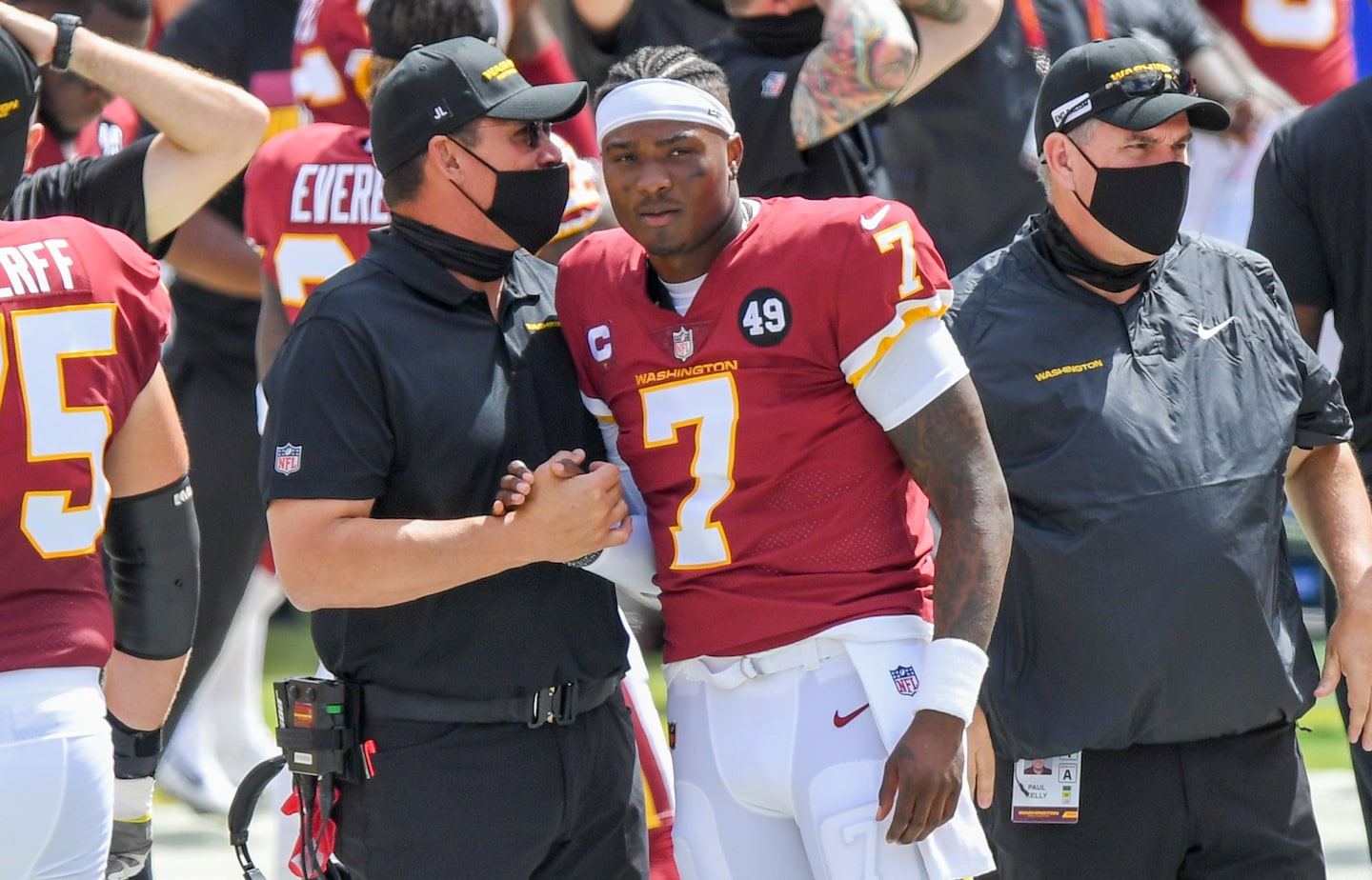Ron Rivera is coaching through his cancer, and the battle might be making his team better

Still, there are the unavoidable moments that remind everyone of the seriousness of his condition and the significance of his treatment — like last Tuesday, when he missed practice after getting his first chemotherapy treatment, or when he spent halftime of Sunday’s 27-17 victory over Philadelphia hooked to an IV, missing the chance to talk to his team.
Most NFL coaches would struggle with this, unable to relinquish the control that comes with a halftime address, especially in their first game with a new team. For Rivera, the empty stage in the locker room’s middle was an open mic waiting to be seized, a chance for someone on a young team to make the moment his own. Away in another room, with a wire attached to his arm, Rivera wondered who would step forward.
“I was very curious as to who it would be,” he said during an interview this week.
Rivera’s hope was that it would be a player and not a coach. He thought of the players he had identified as possible leaders — defensive tackle Jonathan Allen, guard Brandon Scherff and tackle Morgan Moses — and wondered if everyone had been together long enough to feel comfortable doing so. The fact it was Dwayne Haskins, the team’s 23-year old, second-year quarterback and the player Rivera has perhaps pushed hardest to be a leader, seemed to please him more.
So much of this year for Rivera is about creating a culture upon which the team can build into a winner. To create that culture, he wants his players to take ownership of their team, to organically believe in each other without the prompting of coaches. In a strange way, the fact that his cancer has kept him away from the team at critical moments has forced the players to challenge themselves — by themselves.
“When I got back after that first practice I missed [last Tuesday], someone told me: ‘Hey, Coach, you should see the way they practiced out there,’” Rivera said, still pleased days later by the crispness with which they worked that day.
“I think they were more ready than you think,” he said.
It was early in the evening on the day after the Philadelphia win and Rivera was walking as he talked. His doctors have suggested he take walks as an exercise while battling cancer, a kind of daily release. Chemotherapy is what has tired him the most. He is scheduled to have three chemo treatments — one every 21 days in addition to seven weeks of proton therapy — and there are days when he feels more worn out than others. But he tries to do everything he can to keep his energy up, to keep pushing into the season.
Part of that is the halftime IV, which he planned with the team’s doctors and trainers. The cancer treatments have left his throat sore and have forced him to stay hydrated. He isn’t sure he needed the IV on Sunday, but everyone felt the extra fluids would help him in the heat, protecting him from wearing down in the fourth quarter. Even still, he missed the first two plays of the second half while finishing the IV and then had to run under the stands between the third and fourth quarters to use the restroom.
He isn’t sure if he will do the IV treatment in Arizona during Sunday’s game against the Cardinals. Everything is a new experience with cancer and he wants to see how he handles traveling across the country before making decisions on what he will do during the game.
This is probably how the next several weeks will go. He will try to make every practice, every game, every meeting, but nothing is certain. He knows he will miss some things, even if he doesn’t yet know what they are.
“He’s effectively said some version of: ‘Here I am, but let’s carry on,’ which, I think, is important for a leader to say,” Jason Wright, the team’s new president said not long after Rivera revealed his cancer in an address to the players.
As Rivera walked Monday night, his words boomed through the phone. Sunday’s victory, which came with 27 straight points after a disastrous start and a 17-0 deficit, seemed to encourage him. He talked about how when he named captains a few days before the opener, he gathered those players together and told them he might not be around all the time, and that when he is gone, they will have to lead the team. Then, on Sunday, when he wasn’t there, one of those captains stepped into the circle and spoke.
“When guys start taking ownership, when they start taking leadership and they start making it their own, that’s when you start to see success,” Rivera said.
And in the strangest of years, with his cancer’s cure also poisoning his body, he walked into the dusk feeling very good indeed.






